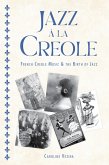Hawaiian Music in Motion explores the performance, reception, transmission, and adaptation of Hawaiian music on board ships and in the islands, revealing the ways both maritime commerce and imperial confrontation facilitated the circulation of popular music in the nineteenth century. James Revell Carr shows how Hawaiians initially used music and dance to ease tensions with, and spread information about, potentially dangerous foreigners, and then traces the circulation of Hawaiian song and dance worldwide as Hawaiians served aboard American and European ships. Drawing on journals and ships' logs, Carr highlights the profound contrasts between Hawaiians' treatment by fellow sailors who appreciated their seamanship and music, versus antagonistic American missionaries determined to keep Hawaiians on local sugar plantations, and looks at how Hawaiians achieved their own ends by capitalizing on Americans' conflicting expectations and fraught discourse around hula and other musical practices. He also examines American minstrelsy in Hawaii, including professional touring minstrel troupes from the mainland, amateur troupes consisting of crew members of visiting ships, and local indigenous troupes of Hawaiian minstrels. In the process he illuminates how a merging of indigenous and foreign elements became the new sound of native Hawaiian culture at the turn of the twentieth century--and made loping rhythms, falsetto yodels, and driving ukuleles indelible parts of American popular music.
Dieser Download kann aus rechtlichen Gründen nur mit Rechnungsadresse in A, D ausgeliefert werden.









